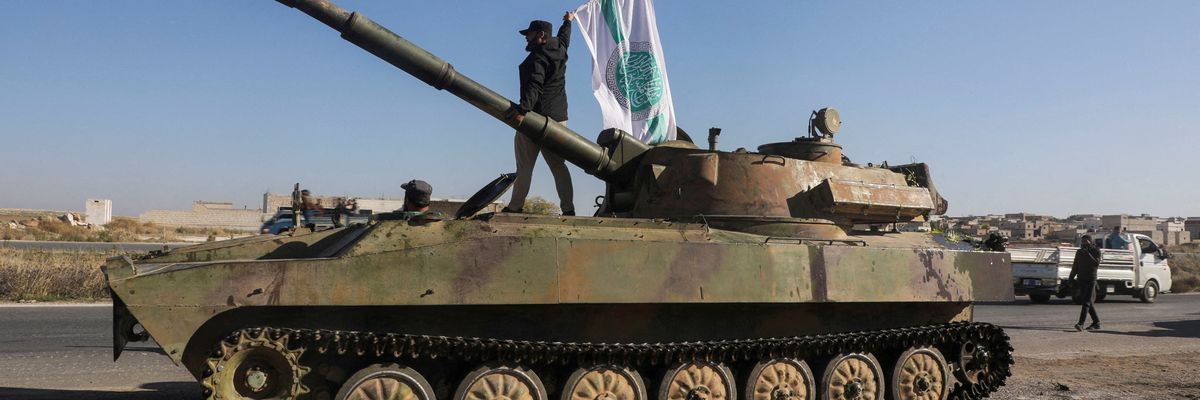As Islamist, al-Qaida-linked group Hayat Tahrir al Sham (HTS) overruns Syria amid President Assad’s sudden ouster, evidence suggesting Ukraine has assisted the group’s triumph continues to mount.
Namely, the Washington Post reported Tuesday that Ukraine sent 150 first-person-view drones and 20 drone operators to Idlib about a month ago.
The New York Times reported earlier this month, moreover, that Ukraine and HTS were coordinating efforts including “countering Russian misinformation and providing medical assistance.” The reporting also highlighted Ukrainian intelligence head Kyrylo Budanov’s repeated suggestions that Ukraine would target its enemy Russia internationally.
Washington Post columnist David Ignatius mused that Ukraine’s intentions for assisting HTS were obvious, writing that the war-torn nation was looking for other ways to “bloody Russia’s nose and undermine its clients.” In turn, a source told the New York Times that the HTS offensive in Syria was likewise timed in part to strike a blow against mutual enemy Russia.
Indeed, Russian officials have repeatedly complained that Ukraine and HTS collaborate within an intelligence or military capacity. As Russia’s special representative for Syria, Alexander Lavrentyev, told Russian News Agency TASS in November: “We do indeed have information that Ukrainian specialists from the Main Intelligence Directorate of Ukraine are on the territory of Idlib.”
“Cooperation between Ukrainian and Syrian terrorists… is underway both when it comes to the recruitment of fighters to the Ukrainian army and to mounting attacks against the Russian and Syrian troops in Syria,” permanent Russian representative to the UN Vassily Nebenzia likewise alleged in early December. “Far from concealing the fact of Ukraine's support, the HTS fighters are openly flaunting this.”
The overall impact of Ukraine support to HTS ultimately seems unclear. On one hand, an anonymous Ukrainian official recently confirmed Kyiv-Idlib cooperation to Middle East Eye, but explained that their engagements ultimately did little to steer outcomes in the militia’s successful December attack. “We might claim less than a fraction of help for [the recent] offensive,” the Ukrainian official said. On the other hand, as Middle East Eye also reported, Turkish observers posit drones gave HTS forces an advantage over Syrian government fighters.
All matters considered, Ukraine’s assistance to HTS may partially be intended to accrue legitimacy with the West amid continued war with Russia.
“Ukraine's alleged assistance to HTS forces is of limited military significance insofar as the SAA was inherently unprepared to resist the rebel offensive,” said Dr. Mark Episkopos, Quincy Institute Research Fellow and Adjunct Professor of History at Marymount University.
“But it is part of Kyiv's broader effort to court Western support for its NATO accession bid by demonstrating to the US and other stakeholders its effectiveness in countering Russian interests around the world.”
- Ukraine and the Pentagon's potentially deadly garage sales ›
- Assad falls, reportedly fleeing Syria. What's next? ›
- HTS: Can these Islamists truly unify a post-Assad Syria? | Responsible Statecraft ›
- US veterans: Didn't we fight Al Qaeda terrorists for a reason? | Responsible Statecraft ›
- Why Russia survived — and may thrive — after Syria regime change | Responsible Statecraft ›
















